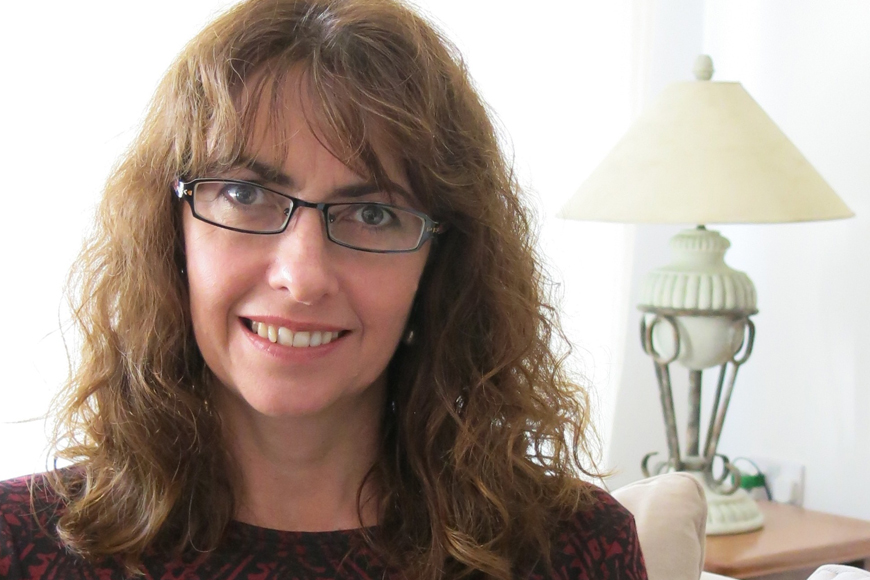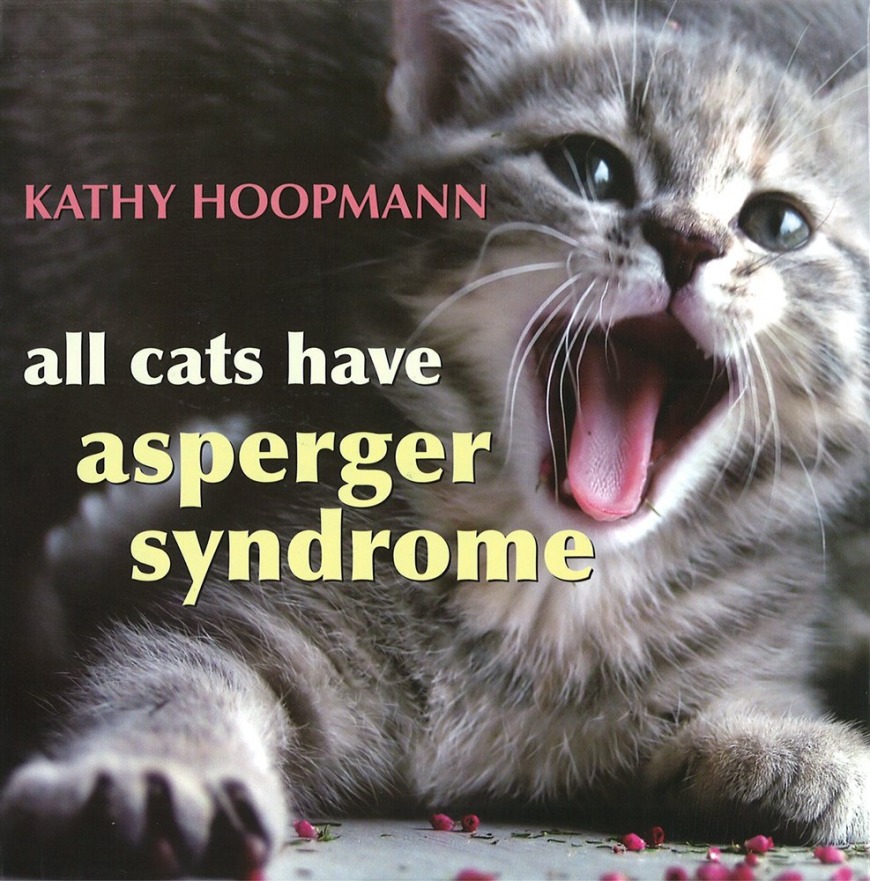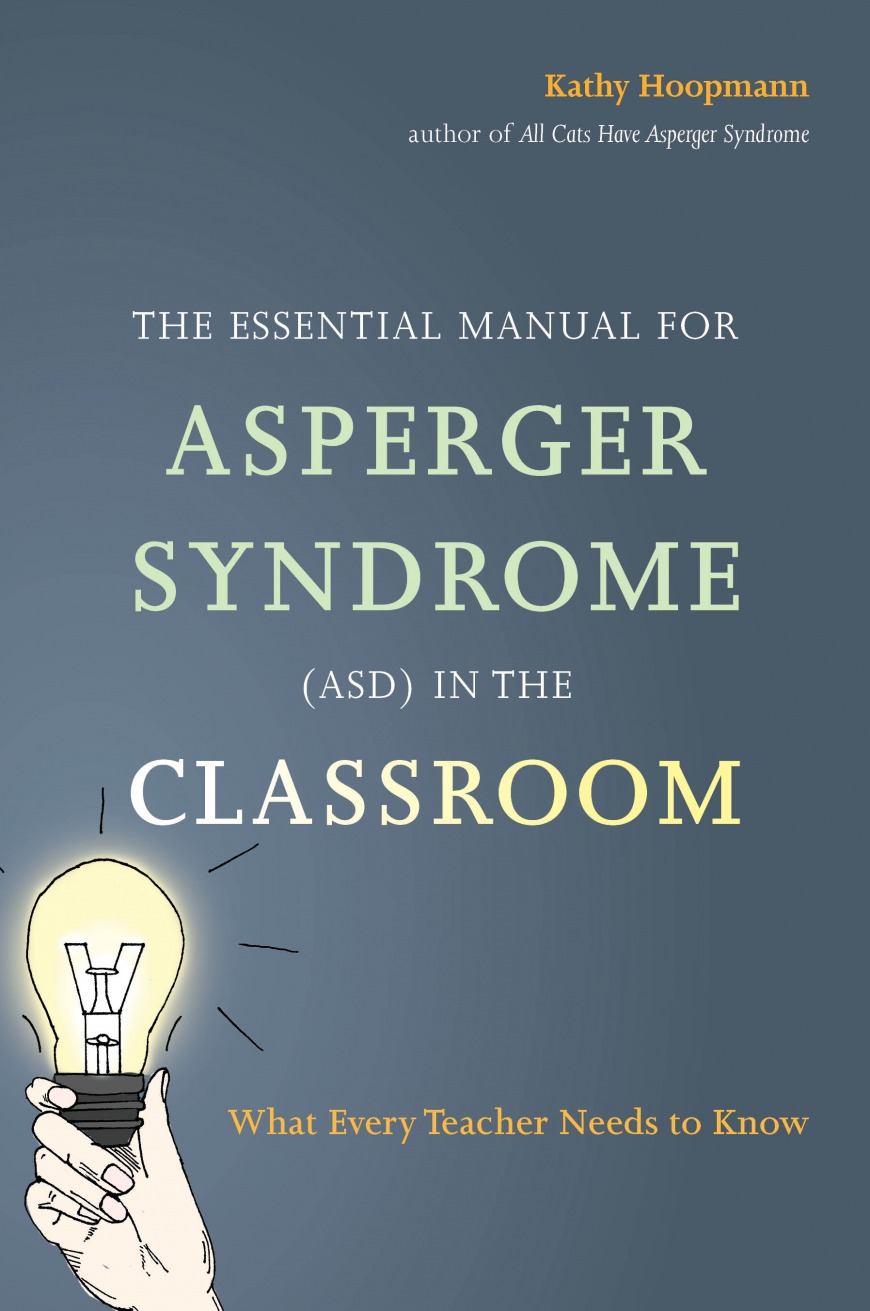Showing The World That Different is Not Bad: Meet Kathy Hoopmann
"Then when a family member was diagnosed with Asperger Syndrome, I became fascinated with the Asperger mind..."
13 February 2019

In recent years, the UAE has experienced a much-needed surge of acceptance and awareness of special needs.
So much so that now, world-standard professional services, facilities and educational can now be found in Dubai - and the community here, both expatriate and local, are actively encouraging inclusion of individuals with special needs - or people of determination - in the community.
Here to help raise awareness this March will be author and special needs advocate Kathy Hoopmann. She'll be returning to Dubai for 2019 edition of the Emirates Airline Festival of Literature - and you can meet her yourself on Saturday 8th March.
Ahead of the festival, we had the chance to speak to the award-winning author herself...
When did you first realise you wanted to be a writer?
"Even as a child, I loved to write. I still have my first ‘book’ stapled together at age 10 about creatures that live at the centre of the earth. However being an author is not a career option usually offered to children, so I became a primary school teacher. I was an avid reader fascinated by the different worlds authors created and I shared that love with my classes. Finally I decided to create my own worlds and a new career was born."
What inspired you to write about Asperger Syndrome?
"My first writing love was dragons. And gnomes, and dwarves. And gnomes flying on dragons. Oh, and science fiction and different universes. My fantasy novel, "Tremada", is still up there with the books that I most enjoyed writing.
"Life inside my head was infinitely more exciting than real life. I was not exactly what you would call 'earthbound'. Then when a family member was diagnosed with Asperger Syndrome, I became fascinated with the Asperger mind.
"At the time, an autistic diagnosis was all doom and gloom with dire predictions about never having friends, or coping at school or getting a job. I mixed with others who had children on the spectrum and we all knew how clever and funny and bright these children were in their own ways. So I set out to show the world that different is not bad, it’s just a different way of seeing the world.
"Admittedly, my first three books that dealt with Asperger Syndrome combined my interests. "Blue Bottle Mystery" had a genie, "Of Mice and Aliens" had, well, aliens, and "Lisa and the Lacemaker" dealt with a ghost. (Blue Bottle Mystery and Lisa and the Lacemaker came alive recently as stunning graphic novels. My illustrators, Rachael Smith and Mike Medaglia are artistic geniuses!)
SEE ALSO: 9 helpful apps for special needs
"My teen novel "Haze" was supposed to be about time travel, but my teenage Aspie refused to comply. It was real life or nothing with him, so I put aside my sci fi yearnings and obeyed my character. I do that a lot - let my characters write their own plots. It's easier than arguing with them and they usually win in the end anyway.
"My first photo book, "All Cats have Asperger Syndrome" came from the recognition that whilst there was a lot of information on Asperger's available at the time (the book was released in 2006) much of it was adult orientated, wordy and full of technical jargon. There was nothing for children to read for themselves and nothing simple to hand to Grandpa or a teacher or the lady next door to explain why those with Asperger's did the things they did.
"I wanted to write a quick, visual read that highlighted the positives without ignoring the difficulties of the syndrome. I did similar things with my later photo books: "All Dogs Have ADHD", "Inside Asperger Looking Out" and "All Birds Have Anxiety"."

How long does it take you to write a book, and what is your schedule like when you’re writing?
"All my books have taken different paths from concept to publication. Blue Bottle Mystery took me two weeks to write the first draft, but most of my books, fiction and non-fiction take at least a year to write, and some longer.
"In a perfect life, I would have a routine. Unfortunately my life over the past few years has consisted of moving countries twice and a lot of travel and external commitments. On a good day, I can work solidly for hours on end, and then it may take days, sometimes weeks, before I get that chance again. So for now, my ‘routine’ is intense irregular sessions.
"When I’m writing a novel, I try for 2000 words a day. But some days I will spend hours over one sentence. When I’m stuck, I put on music, and start pacing. There might not be many words produced, but the creative flow is brimming. When I write my photo illustrated books I can spend a whole day looking at literally thousands of photos and come away with just one perfect image and feel that it was a good day’s work. Likewise, when I am deep in my non-fiction I may research a topic for days, listen to podcasts, read books, and then refine the essence of all I have learnt into one perfect sentence. It’s tedious and exhilarating all in one."
You celebrate the differences in people in your work – is this something children could be learning more of through education? And how?
"Absolutely. Children are very open to accepting others around them without question. They don’t see skin colour or disability unless it is pointed out to them.
"If that nature can be nurtured then it will filter through to their adult life. When inclusion of people who are ‘different’ occurs in a classroom and in the community then everyone benefits, as those who are often ostracized have so much to give.
"Of course, inclusion must come with support and awareness and education. One way I have personally tackled this is by using my background in teaching, and my knowledge of ASD, to write a book to help teachers understand, appreciate and support and enjoy the children on the spectrum in their care.
SEE ALSO: A complete guide to 22q11.2 Deletion Syndrome - a.k.a. DiGeorge Syndrome
"'The Essential Manual for Asperger Syndrome (ASD) in the Classroom' tells you exactly what you are getting. I knew from personal experience that after an exhausting day with students, the last thing teachers want to do is research how to help one child in one class with a specific issue. So I did all the research for them. This manual is easy to navigate, rich with information and is filled with tips that are easily workable in the average classroom.
"The book is not designed to be read cover to cover, but rather an ‘Issue Sorter’ at the front of the book directs the teacher to the section most likely to be helpful, such as social issues, bullying, field trips, meltdowns, forming friendships, literal thinking and speaking, and the overwhelming influence of sensory sensitivities.
"Many of these issues overlap with other diagnoses and can help provide a classroom environment that builds self esteem, which, let’s face it, is a more powerful solution to good grades than any weekly test.
"In each section, I’ve included an insight as to how each issue affects the child from his/her point of view; activities to help explain the child's behaviour to other students; and a 'Home Link' helping parents and teachers to work together.
"Basically, I wrote a book that I wished I had owned years ago."

What advice would you give parents to help their children be accepting of others and those with additional needs?
"Parents, you are powerful role models. Your children copy the way you speak and act. You can point out to your children ways they can help and be kind to others they see need extra help.
SEE ALSO: How to parent when you've split from your partner
"Invite the ostracized child home for a play date. If your child complains about the behaviours of an additional need student, sit them down and help them see life from another angle. Imagine they had to swap places – how would they want to be treated. Apply the Golden Rule: Do to others as you would want done to you.”
Do you feel special needs and learning difficulties are included enough in written works overall – how can authors be more inclusive nowadays?
"Over the past 20 years or so, it has been wonderful to see that there have been a flood of books that feature everything from autistic characters to dyslexia to Downs Syndrome. And the best part is, these characters enrich the books with their unique ways of seeing the world."
Are there any other learning difficulties you would like to cover in your work?
"I am often contacted by people who suggest titles for a new book.
"All Donkeys have ODD (maybe), All Sloths Have Depression (I'm sure they don't. Have you seen their happy little faces? and All Fish Have Short Term Memory Loss (Not true. Apparently, they have a longer memory span than teenagers).
"Personally I think it would be intriguing to write All Goats have Pica (true- they’ll eat anything), All Penguins have Capgras Syndrome (how can they tell each other apart) and All Clams Have Cotard Delusion. (Go look that one up.)"
You lived in Dubai - Do you feel special needs is given enough support in the UAE? And if not, how could the country improve?
"I lived in Dubai from 2003-2016 and I saw a huge surge in acceptance and awareness of special needs during that time.
"Many excellent centres now provide world standard professional services. It’s also wonderful to see so many Emiratis actively supporting and encouraging inclusion in education and in the community.
SEE ALSO: 10 ways to help your children sleep better
"I now live I Australia but I will be presenting at the Emirates Airline Festival of Literature 2019. I am very excited to be able to promote awareness and understanding of autism, Aspergers, ADHD, and Anxiety, to show the world that 'different' can be a good thing. It is my hope and belief that literature truly can change the world of special needs for the better."
Where to meet Kathy at the Emirates Airline Festival of Literature
- Date: Friday 8th March, 2019
- Time: 10am - 11am
- Location: Al Baraha 2, InterContinental, DFC
- Price: AED 50 / AED 45 for Foundation Friends
- Buy your tickets
Did you know that all Birds Have Anxiety and all Cats Have Asperger’s? Award-winning author Kathy Hoopmann will be showing how she weaves stories around photos and special needs topics, and will also be exploring the ideas which inspired Elemental Island, which she co-wrote with J.S. Kiss.
Don’t miss this illuminating and important session – a must for anyone who would like to know more about these topics!

























.png?itok=SvZPqMHH)





.png?itok=uB2ieOR7)












